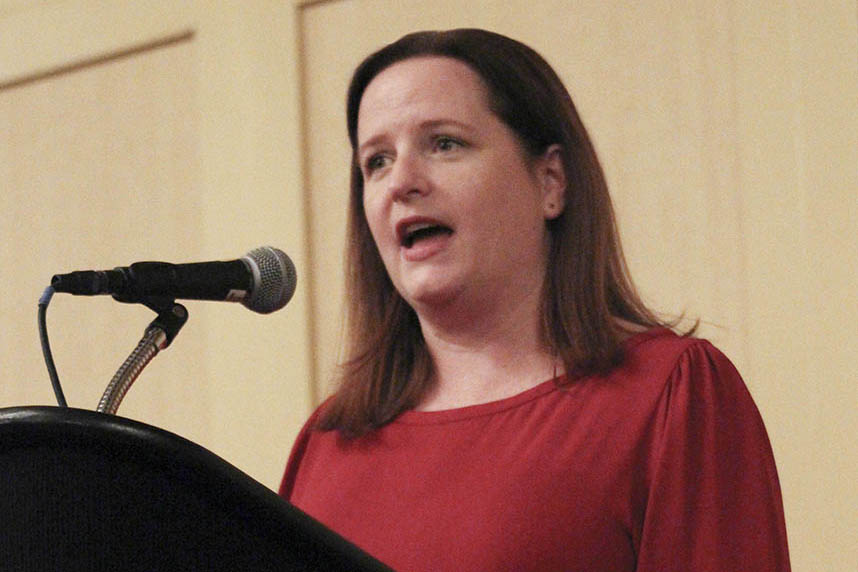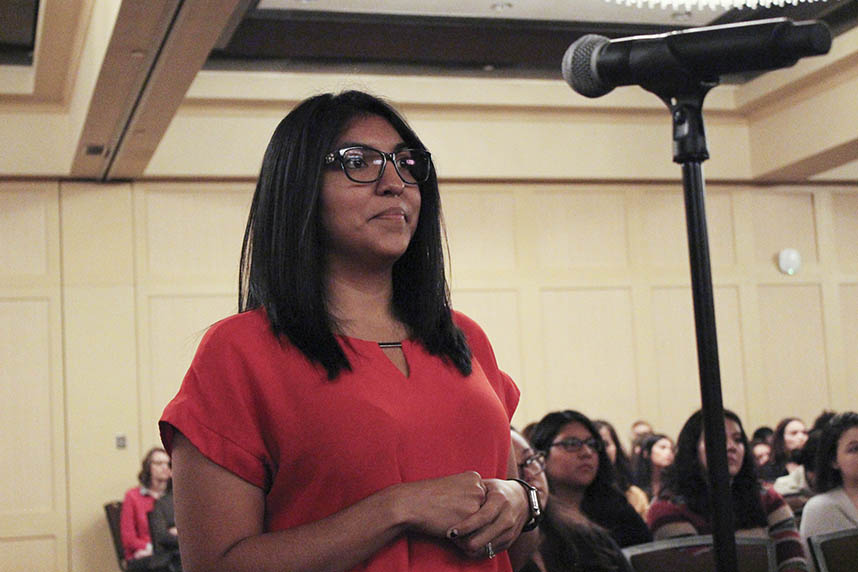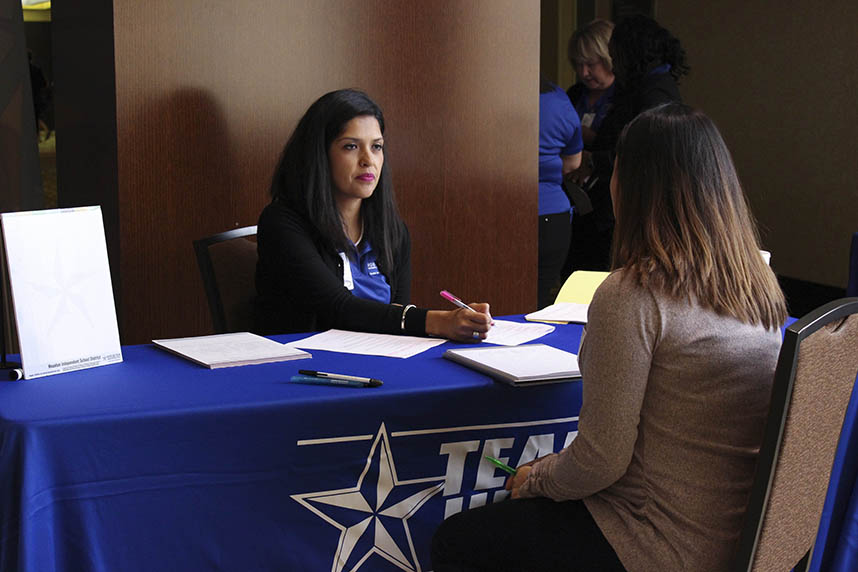Ten Tips for Getting Your First Teaching Job – and Succeeding in the Classroom
Posted Nov. 13, 2017 – Applying for your first job as a teacher can be daunting, but preparation will increase your chances of success.
HR executives from local school districts shared numerous job-hunting tips Friday at the fall 2017 Houston Area Teacher Center student-teaching conference, held at the University of Houston. A job fair with dozens of districts and on-the-spot interviews followed.
“We’ve been waiting for you, so we can put trained people who’ve gone through university programs in those (open) positions,” Andrea Kuhn, human resources director for the Cypress-Fairbanks Independent School District, told the roughly 450 students at the start of the conference. “We’ve been telling our campus principals, ‘Please wait. Don’t take someone who’s gone through an (alternative certification program), who’s transitioned from the business world. We want student teachers.’”
Students who go through the UH College of Education’s teacher-prep program are required to complete a yearlong student-teaching internship before graduating.
“Being able to spend a full year learning under an experienced mentor teacher helps our students be classroom ready on day one,” said Amber Thompson, associate chair over the College’s teacher-prep program.
Shea Culpepper, director of the teacher-prep program, said the biannual HATC conference gives students access to crucial information.
“They learn what principals are really looking for in new teachers, get advice on building the perfect résumé and hear ideas for making the most of their first year in the classroom,” Culpepper said. “In addition, they have a chance to sell themselves at a job fair open only to teacher candidates from participating teacher-preparation programs.”
The following tips for aspiring teachers come from Karen Cossey, teacher recruiter, Spring Branch ISD; Kay Kerr, human resources director, Channelview ISD; Andrea Kuhn, human resources director, Cy-Fair ISD; Jeff McCanna, officer of human capital, Houston ISD; and Martin Moffett, human resources coordinator, Pasadena ISD.
- Do your homework before a job interview. Look up possible interview questions online and practice, Kuhn said. Review a school’s data (e.g. student demographics, test scores, etc.). “The answers are not going to miraculously come to you when you sit in that chair if you haven’t prepared,” she said.
- Show off your enthusiasm and compassion for working with all children. And continue to exhibit those qualities on the job. “I wish I could tell you every day’s going to be beautiful and sunny, and you’re not going to have any classroom discipline problems. But those days are going to happen,” Moffett said. “The true test is that you come the next day. Kids will say things and do things they don’t really mean to do in anger. We have to forget it. I call the best teacher the one who has a little amnesia.”
- Don’t forget to smile. And be confident, Kuhn said. First impressions matter.
- Demonstrate that you’re good at building relationships – with your colleagues, students and parents. “When you build those relationships, you’re building that community in your classroom,” Kuhn said.
- Follow-up after the interview. Take notes, Cossey said, and follow through on any additional information you promised to provide.
- Display professionalism in all areas. Clean up your social media accounts, your voicemail message and how you present yourself in person, Kerr said.
- But be yourself. “If you get hired as someone else, you’re going to get fired as yourself,” McCanna said.
- Consider substitute teaching or working as a paraprofessional at your first choice campus if the school doesn’t have any open teaching positions, Kuhn said. You’ll be first in line when a job becomes available.
- “Plan purposefully and work relentlessly” once on the job, McCanna said. Successful teachers overcome obstacles with grit and perseverance.
- Be resilient. “As a teacher, you have to be the one that’s modeling that,” Cossey said, “because your students aren’t always going to be successful.”
–By Ericka Mellon
–Photos by Jaime Questell








